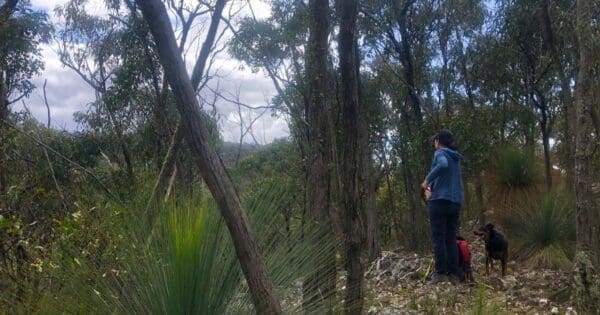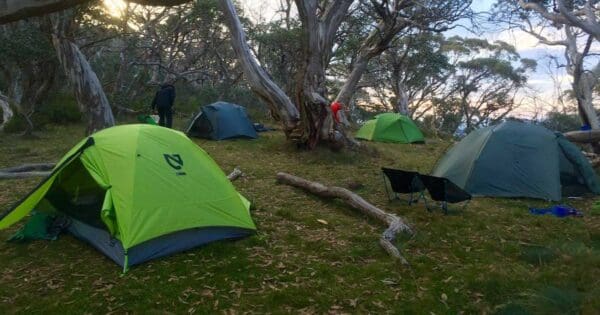Keeping Wildlife Out of Your Hiking Pack: A Guide to Responsible Hiking
When you venture out on the trails, you’re entering the territory of wild animals, making it essential to minimise your impact on their habitat. One critical aspect of responsible hiking is ensuring wildlife stays out of your hiking pack. Not only does this protect wildlife, but it also keeps you and your food safe during your outdoor adventures.
Why It Matters
- Wildlife Protection: Wildlife is an integral part of natural ecosystems. By taking steps to keep them out of your pack, you help maintain their natural behaviors and prevent them from becoming reliant on human food sources.
- Personal Safety: Attracting wildlife to your pack can lead to dangerous encounters. Animals, especially bears and rodents, may become aggressive when seeking food, putting your safety at risk.
- Environmental Responsibility: Following the principles of Leave No Trace is essential for preserving the beauty of nature for future generations. Responsible hiking minimises your ecological footprint and protects wildlife habitats.
Tips for Keeping Wildlife Out of Your Pack
Here are effective strategies to ensure your hiking pack remains wildlife-proof:
1. Store Food and Trash Properly
- Animal-Proof Containers: Always store food, snacks, and trash in bear-resistant containers or canisters designed for hiking. These are specifically engineered to deter wildlife.
- Pack Out Trash: Collect and pack all food waste and wrappers in sealed plastic bags. Dispose of waste in designated receptacles or take it with you.
- No Leaving Food Unattended: Never leave food or trash outside your tent or pack, even for a moment. This can attract wildlife, especially at night.
2. Pack Smelly Items Securely
- Odor-Proof Bags: Store toiletries and other items with strong scents (like sunscreen and bug spray) in odor-proof bags to prevent attracting wildlife.
- Seal Everything: Make sure all containers are tightly sealed and minimise any food odors from leaking out.
3. Keep Your Backpack Clean
- Regular Cleaning: Shake out your backpack and wipe down the interior regularly to remove food crumbs or spills. A clean pack reduces enticing smells.
- Pre-Hike Inspection: Before each hike, inspect your pack for any leftover food debris or stains.
4. Inspect and Repair Your Backpack
- Check for Holes: Thoroughly inspect your backpack for holes or openings that rodents can exploit. Repair any damage promptly.
- Secure Closures: Ensure zippers and buckles are fully closed. Consider using twist ties or clips to secure zippers that may be vulnerable to curious birds.
5. Use a Pack Cover
- Waterproof Covers: A snug-fitting, waterproof pack cover can deter wildlife from getting inside your bag. Make sure it covers all pockets and openings.
6. Use Visual Deterrents
- Reflective Tape: Use shiny reflective tape or items that catch the light, which may scare off birds and other small wildlife.
7. Stay Vigilant
- Constant Monitoring: Keep an eye on your backpack, especially during breaks or while setting up camp. Always ensure it is closed and secured.
- Educate Hiking Buddies: Make sure everyone in your hiking group is aware of proper food storage practices to reinforce wildlife safety.
8. Respect Wildlife Habitats
- Maintain Distance: Observe wildlife from a distance without approaching or feeding them. This helps keep both you and the animals safe.
- Do Not Feed Wildlife: Feeding can cause animals to lose their natural fear of humans, leading to dangerous situations for both parties.
9. Educate Yourself
- Local Wildlife Knowledge: Research the types of wildlife common in the areas you’ll be hiking. Understanding their behaviors can help you better prepare and take precautions.
- Recognise Signs of Wildlife: Be aware of tracks, droppings, and other signs that animals are nearby, so you can take additional precautions.
10. Follow Leave No Trace Principles
- Minimise Impact: Stay on designated trails to avoid disturbing wildlife habitats. Avoid trampling on vegetation or nesting areas.
- Pack It In, Pack It Out: Always leave the area as you found it, packing out all your trash, leftover food, and litter.
Conclusion
Responsible hiking means taking proactive steps to keep wildlife out of your pack. By storing food and trash properly, avoiding strong-smelling items, and adhering to the principles of Leave No Trace, you contribute to the protection of wildlife and their habitats. These practices not only enhance your hiking experience but also ensure that the beauty of nature remains intact for future generations.
Have you encountered wildlife while hiking? What strategies have you found effective in keeping them away from your pack? Share your tips and experiences in the comments below!





